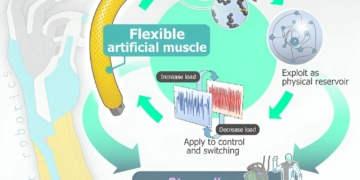For many years, the concept of recovery from alcohol use disorder (AUD) has permeated our societal discourse and been celebrated for individuals with AUD who do recover. Yet, recovery’s complex nature has led to ambiguity about its meaning. This lack of agreement about the kinds of outcomes that define recovery has complicated efforts to compare findings across recovery research studies. Finding agreement about what recovery means—what it looks like to scientists, healthcare providers, and affected individuals alike—is vital to advancing this area of alcohol research.
“The notion of recovery is fundamental to scientific research on AUD, and essential for improving the care and treatment of individuals with AUD,” says NIAAA Director George F. Koob, Ph.D. “The knowledge of how one gets better from AUD, or any other psychiatric disorder for that matter, will greatly facilitate treatment and recovery research.”
In the latest attempt to bring clarity to this important topic, NIAAA has developed a consensus definition of recovery from AUD. The new definition, which takes into account remission from AUD, cessation from heavy drinking, and improvements in dimensions of well-being, was unveiled on September 30, 2020, in a virtual roundtable discussion sponsored by NIAAA’s Division of Treatment and Recovery Research (DTRR). The roundtable featured presentations by leading extramural recovery researchers John Kelly, Ph.D., Massachusetts General Hospital and Harvard Medical School; Stephen A. Maisto, Ph.D., Syracuse University; Constance Weisner, Ph.D., Kaiser Permanente Northern California; Katie Witkiewitz, Ph.D., University of New Mexico; Jalie A. Tucker, Ph.D., M.P.H., University of Florida; and Christine Timko, Ph.D., Stanford University. The presenters discussed a wide range of topics related to defining recovery in general and to NIAAA’s definition specifically, as well as the challenges associated with defining recovery in clinical practice. (Please see the NIAAA website for more information about the virtual roundtable.)
“To be sure, the discussion will continue on the meaning of recovery,” notes Brett Hagman, Ph.D., a Program Director in DTRR, who co-moderated the recent virtual discussion with Dan Falk, Ph.D., of DTRR. “But the emerging picture of recovery is one of a dynamic process with multiple pathways that may not always include abstinence.”
NIAAA-Supported Research on Recovery
In addition to developing a consensus definition to improve consistency across AUD recovery research, NIAAA continues to support research that explores the complex nature of, and varied paths to, recovery. For example, some individuals with alcohol and other substance use disorders (SUDs) enter peer-operated sober living houses to facilitate their recovery. Research led by Douglas L. Polcin, Ed.D., of the Public Health Institute in Oakland, California, is seeking to better understand the role of helping behaviors (i.e., giving help as well as receiving help from recovering peers, family members, and friends) in sustaining recovery for individuals in sober living environments. While setting or environment plays an important role in the road to recovery, some individuals are able to recover on their own without peer assistance or professional treatment. To improve our understanding of this phenomenon, Paul Gilbert, Ph.D., of the University of Iowa, leads a study to identify the processes associated with recovery outside of treatment and to test how recovery definitions relate to those processes and recovery outcomes.
Mutual support groups, such as Alcoholics Anonymous (AA) and other 12-step programs, are among the most popular choices for helping individuals begin and maintain recovery from alcohol and other SUDs. In a current study, J. Scott Tonigan, Ph.D., of the University of New Mexico and colleagues are developing an empirical model to identify the specific mechanisms of AA that lead to behavior change and improved alcohol outcomes. In another study of mutual support programs, Sarah E. Zemore, Ph.D., and colleagues at the Public Health Institute in Oakland, California, are conducting a national study on the nature and effectiveness of secular, abstinence-based alternatives to 12-step groups, including Women for Sobriety, LifeRing Secular Recovery, and SMART Recovery.
While remission from AUD symptoms and cessation from heavy drinking are key components of the NIAAA consensus definition described above, research has demonstrated that improvements in physical and mental health, quality of life, and other dimensions of well-being are important recovery indicators. A study led by Elizabeth Bowen, Ph.D., at the State University of New York at Buffalo aims to develop a new measure of recovery capital, defined as the ways in which physical, social, human, and cultural resources might shape a person’s likelihood of sustaining recovery from alcohol and other SUDs. Research being led by Katie A. Witkiewitz, Ph.D., at the University of New Mexico is using a framework for classifying AUD based on neurobiological and behavioral characteristics to examine its utility in predicting AUD treatment outcomes and recovery.
NIAAA is also interested in enhancing our understanding of recovery among adolescents. A study conducted as part of NIAAA’s National Consortium on Alcohol and Neurodevelopment in Adolescence is examining neurocognitive improvement among abstinent youth who transitioned to heavy drinking during the study and have entered a period of abstinence. Investigators led by Susan Tapert, Ph.D., at the University of California San Diego, use behavioral therapy to support the maintenance of abstinence among the adolescents in the study, who then participate in a recovery assessment protocol that examines weekly mood and behavioral changes, sleep and activity levels, and neurocognitive and neuroimaging changes.
Findings from the studies described above as well as future research efforts to revisit the NIAAA consensus definition with knowledge gained are expected to fill critical knowledge gaps and transform how the field perceives and approaches AUD recovery.
The Pandemic and AUD Recovery
For people in AUD recovery, stress is the most common reason for relapse. The COVID-19 pandemic has caused a collective increase in stress across the United States and around the globe. Finding healthy ways to cope with stress is vital to long-term recovery. Recovery programs based on mutual peer support—as well as many different behavioral therapies—involve social support and are very helpful for people who struggle with maintaining sobriety or regulating their alcohol consumption. However, scheduling in-person visits might prove difficult at the moment. People currently in recovery or those who need help may benefit from telehealth and online support group meetings. The NIAAA Alcohol Treatment Navigator website provides information about telehealth and online support group meeting options.
______________________________________________________________________________________
Roundtable Definitions
Recovery From AUD
Recovery is a process through which an individual pursues both remission from AUD and cessation from heavy drinking. An individual may be considered “recovered” if both remission from AUD and cessation from heavy drinking are achieved and maintained over time. For those experiencing alcohol-related functional impairment and other adverse consequences, recovery is often marked by the fulfillment of basic needs, enhancements in social support and spirituality, and improvements in physical and mental health, quality of life, and other dimensions of well-being. Continued improvement in these domains may, in turn, promote sustained recovery.
Remission From DSM-5 AUD
Remission from AUD, as defined by the 5th edition of the Diagnostic and Statistical Manual of Mental Disorders (DSM–5) criteria, requires that the individual not meet any AUD criteria (excluding craving). Remission from AUD is categorized based on its duration: initial (up to 3 months), early (3 months to 1 year), sustained (1 to 5 years), and stable (greater than 5 years).
Cessation From Heavy Drinking
Cessation from heavy drinking is defined as drinking no more than 14 standard drinks per week or 4 drinks on a single day for men and no more than 7 drinks per week or 3 drinks on a single day for women. Cessation from heavy drinking can be categorized based on the duration: initial (up to 3 months), early (3 months to 1 year), sustained (1 to 5 years), and stable (greater than 5 years).
For more information, visit https://www.niaaa.nih.gov/division-treatment-recovery-research#aud














